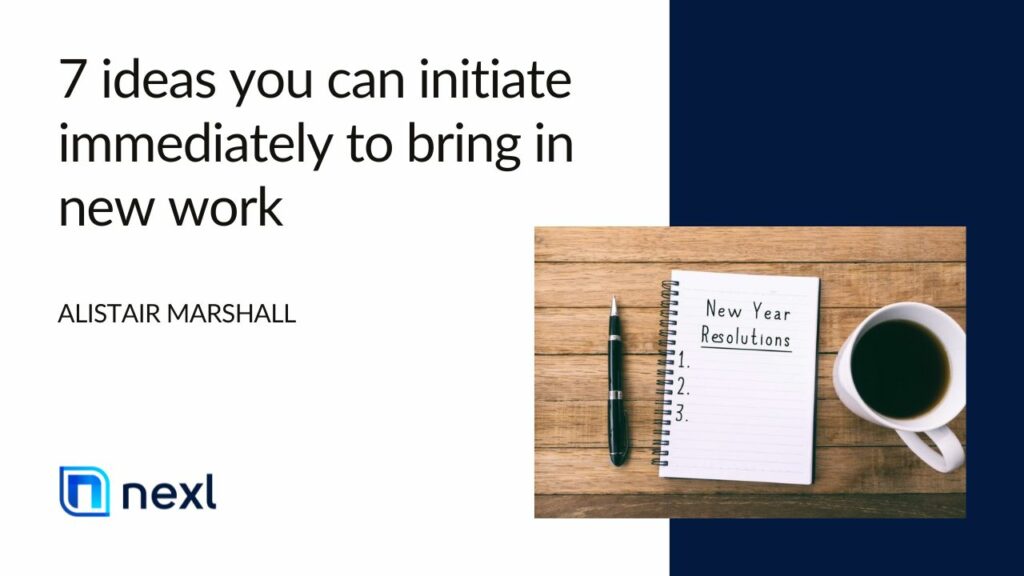OK, we’ll admit it – we’re not totally upset that the state of legal CRMs these days is well, not great.
But facts are facts. And the fact of the matter is that there is a huge amount of churn within the legal CRM market these days – with failed CRM implementations being the above-average norm.
And based on our research into the market, the problem is only about to get worse.
After watching the market for the last past 12 months, we see a CRM pandemic coming for the legal CRM market, with many firms finally deciding to either make a change to their CRM or drop their CRM projects altogether.
But the real question is why? Why are firms finally deciding to change partners?
These days when NEXL finds itself in front of a BD managers, most will confirm that they have in fact rolled out a CRM to their attorneys, unfortunately, however, when asked if most of those lawyers actually use their CRM, the majority inevitably respond sheepishly with a resounding, “Well, no”.
Here’s when reality hits on many of the calls we have with BD Managers and why we see a big shift coming in the attitudes of law firms toward their CRM.
What if the problem with CRM is not the CRM software, but how lawyers use CRM within law firms?
CRMs are supposed to work versus how they are actually used within a law firm – a realization many law firms only now having to come to terms within 2020.
Coming into 2021 and in a post-pandemic work where workflows have become increasingly digital and communication and business development increasingly remote, law firms are coming to terms with the reality as to how lawyer and law firms will use CRM, if they hope to get the data they need to drive better client relationships, in a digital environment.
Fantasy vs. Reality
In theory, most law firms deploy legal CRM with the hope of transforming all their lawyers into rainmakers. The reality, however, is that MOST lawyers within a firm choose to use their CRM as a contact list management, with the relatively few attorneys who actually use CRM as intended, typically those partners or lawyers who are highly incentivized to.
That because incentives matter.
The core problem facing CRMs-as-designed today is that setting a CRM on a desk doesn’t change lawyer incentives to keep their contacts and relationships close, creating an unsolvable problem that can only be fixed through huge firm-wide change management.
Lawyers have no incentive to use the CRMs, in the way CRMs are meant to be used.
Thus the problem is not the software. It’s the incentives and unless you realign the hard to change incentives within a law firm, there’s really no reason why you need to roll out a CRM within a law firm.
What to do?
As NEXL looks back at what’s its learned over the last 12 months researching the CRM space, we’ve seen that kind of effort required to transform law incentives and behaviour relative to the return on that investment is, well, massive, considering both the cost of software and the cost of change.
Of the firms we’ve spoken with this year, few if any are ready to undertake such a big effort to transform the incentives within their law firm.
In fact, many would rather “fire” their CRM than do such work, understanding that without a clear vision and commitment for CRM success, the firm’s new CRM is likely to run into the same causes for failure that’s cause
CRM-as-built can simply not work within the currently-as-built CRM paradigm. But what if a new CRM is needed. One that aligns with the current incentives already within the law firm ecosystem?
At NEXL we’ve built what we believe is the first non-CRM, CRM for lawyer and law firms. One aligned with the realities and incentives present today and built for the new remote world legal is graduating into.
If you’re interested, in learning how NEXL has re-imagined the CRM for law firms – take a look here.
But facts are facts. And the fact of the matter is that there is a huge amount of churn within the legal CRM market these days – with failed CRM implementations being the above-average norm.
And based on our research into the market, the problem is only about to get worse.
After watching the market for the last past 12 months, we see a CRM pandemic coming for the legal CRM market, with many firms finally deciding to either make a change to their CRM or drop their CRM projects altogether.
But the real question is why? Why are firms finally deciding to change partners?
These days when NEXL finds itself in front of a BD managers, most will confirm that they have in fact rolled out a CRM to their attorneys, unfortunately, however, when asked if most of those lawyers actually use their CRM, the majority inevitably respond sheepishly with a resounding, “Well, no”.
Here’s when reality hits on many of the calls we have with BD Managers and why we see a big shift coming in the attitudes of law firms toward their CRM.
What if the problem with CRM is not the CRM software, but how lawyers use CRM within law firms?
CRMs are supposed to work versus how they are actually used within a law firm – a realization many law firms only now having to come to terms within 2020.
Coming into 2021 and in a post-pandemic work where workflows have become increasingly digital and communication and business development increasingly remote, law firms are coming to terms with the reality as to how lawyer and law firms will use CRM, if they hope to get the data they need to drive better client relationships, in a digital environment.
Fantasy vs. Reality
In theory, most law firms deploy legal CRM with the hope of transforming all their lawyers into rainmakers. The reality, however, is that MOST lawyers within a firm choose to use their CRM as a contact list management, with the relatively few attorneys who actually use CRM as intended, typically those partners or lawyers who are highly incentivized to.
That because incentives matter.
The core problem facing CRMs-as-designed today is that setting a CRM on a desk doesn’t change lawyer incentives to keep their contacts and relationships close, creating an unsolvable problem that can only be fixed through huge firm-wide change management.
Lawyers have no incentive to use the CRMs, in the way CRMs are meant to be used.
Thus the problem is not the software. It’s the incentives and unless you realign the hard to change incentives within a law firm, there’s really no reason why you need to roll out a CRM within a law firm.
What to do?
As NEXL looks back at what’s its learned over the last 12 months researching the CRM space, we’ve seen that kind of effort required to transform law incentives and behaviour relative to the return on that investment is, well, massive, considering both the cost of software and the cost of change.
Of the firms we’ve spoken with this year, few if any are ready to undertake such a big effort to transform the incentives within their law firm.
In fact, many would rather “fire” their CRM than do such work, understanding that without a clear vision and commitment for CRM success, the firm’s new CRM is likely to run into the same causes for failure that’s cause
CRM-as-built can simply not work within the currently-as-built CRM paradigm. But what if a new CRM is needed. One that aligns with the current incentives already within the law firm ecosystem?
At NEXL we’ve built what we believe is the first non-CRM, CRM for lawyer and law firms. One aligned with the realities and incentives present today and built for the new remote world legal is graduating into.
If you’re interested, in learning how NEXL has re-imagined the CRM for law firms – take a look here.






